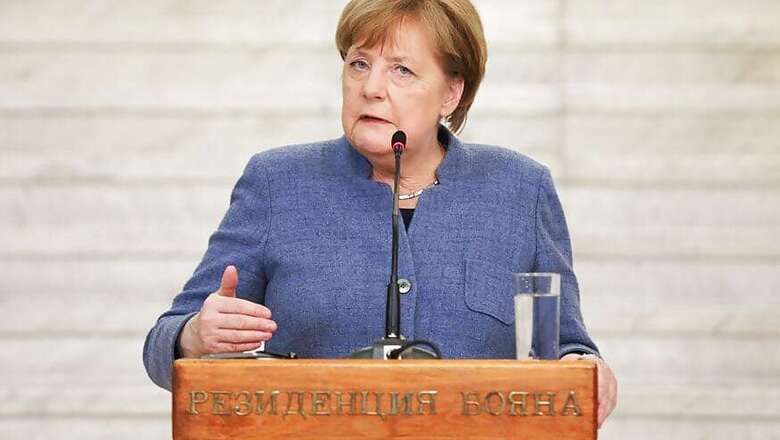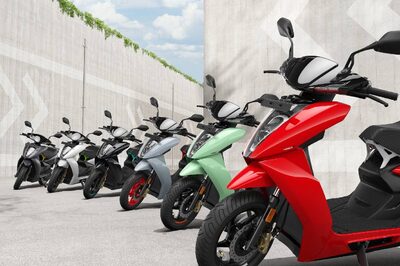
views
Chancellor Angela Merkel heaped pressure on auto giants to pick up the full bill for any refits of older polluting diesel vehicles, as key negotiations got underway on the potentially politically explosive issue. Diesels have come under general suspicion after Volkswagen admitted in 2015 to installing cheating devices in 11 million vehicles worldwide that allowed them to secretly spew far more nitrogen oxide (NOx) than legally allowed.
With several German cities now threatening bans on dirty diesels, Merkel's government and carmakers have been seeking a plan to stave off restrictions that could hurt the vital industry.
But both sides have so far been unable to agree on how to meet the population's health and environmental concerns while pacifying drivers whose vehicles could plummet in value.
"The fastest and best way for the environment is to replace the old fleet with a new one, but to complement that, there will be possibilities for some to obtain a refit -- and in this case, we believe that the customer should not have to pay anything," Merkel told a forum organised by the Augsburger Allgemeine Zeitung late Thursday.
Rather, companies should foot "100 percent" of the refit bill. Carmakers have however so far been reluctant to stump up. That reluctance is in sharp contrast with Volkswagen paying for fixes and buybacks in the United States.
In 2016 the carmaker reached a USD 14.7 billion settlement in a class action suit under which it offered compensation to nearly half a million affected diesel owners, who were also eligible for buybacks or free modifications to fix the vehicles' emissions.
According to the Frankfurter Allgemeine Zeitung, the carmakers are only planning to extend a partially funded refit for vehicles under the so-called Euro-5 standard, which covers cars registered from September 1, 2009.
Talks opened Friday afternoon between Merkel, ministers of finance, environment and transport, and bosses of the automobile industry to hammer out an outcome to the issue. Merkel has said she plans to take the result to leaders of her coalition partners -- the centre-left SPD and her Bavarian allies CSU, on Monday.
NOx and other fine particles have been linked to respiratory illnesses and heart problems, leading to thousands of premature deaths each year. Some 70 German cities including Munich, Stuttgart and Cologne recorded average nitrogen dioxide levels above EU thresholds in 2017, according to the Federal Environment Agency.
Industry giants such as Volkswagen, BMW and Daimler have responded to "dieselgate" by offering software upgrades and trade-ins for newer and cleaner models, but they have so far resisted costly hardware fixes.
Dieselgate has so far cost Volkswagen 27 billion euros ($31 billion) in compensation, buy-backs, fines and legal costs and the group remains entangled in legal woes at home and abroad. Nevertheless, it booked 11.4 billion euros in profit for 2017.




















Comments
0 comment